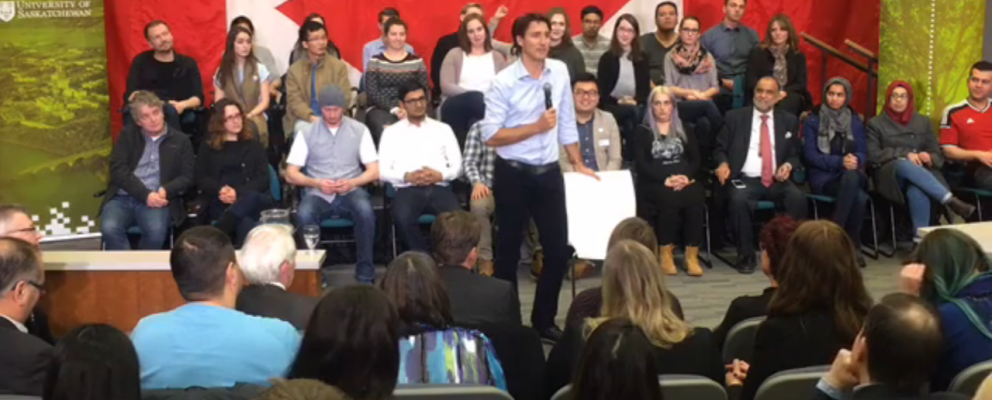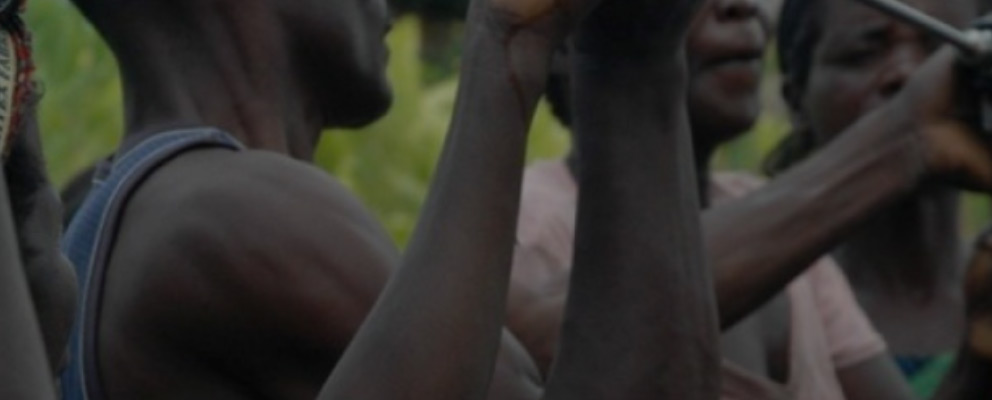
Keeping international development on the PM’s radar
If you’ve glanced at your news feed lately, you’ve probably scrolled past many articles about the new American administration, populism in Europe, and the same rhetoric about current affairs in Canada that we’ve all been hearing for months. It’s easy to be overwhelmed by it all and to feel like one person can’t affect meaningful change. I believe that it’s also essential to remind myself that this is not true. Civic engagement can lead to change; indeed, it is often required for change.
The prime minister has been holding town hall meetings across the country, facing questions from citizens who are concerned about topics like his pipeline policies, his implementation of a carbon tax, and his plans for how to negotiate with the Trump administration. These are all important issues—but they’re not likely to be forgotten by the government, even if they aren’t brought up at town halls (which they inevitably are).
When the PM announced a town hall in Saskatoon, I and several hundred other (mostly) young Canadians waited outside to have a chance to ask him a question, or even just take a few pictures. (And when say “we waited outside,” I actually mean we huddled outside like penguins in the middle of Saskatchewan in January. Anyone who says that young Canadians don’t care about politics is welcome to see how long they last in such weather just for a chance to ask Trudeau a question!) I wanted to ask about Canada’s plan for international development. This is not as hot a topic as pipelines; it’s not something many citizens think about often. It is often appended to speeches as an afterthought, or neglected altogether. But it is vital.
Why?
Canada’s budget for international development has been stagnant in recent years. Funding peaked in 2010-11, and now we lag behind other G7 countries in international assistance. We are also sorely lacking innovative approaches to development, such as a development finance institution to partner the private sector with international development (though the last government set aside funding for one). I think Canadians see themselves as generous and caring people, but the statistics say otherwise. We cannot claim our own economic challenges as an excuse to abandon the world’s poorest. To do so is to abandon our belief that Canadians are caring and generous people.
So, not wanting to abandon this belief, I intended to ask the prime minister about international development policy. Despite being seated in the very last row of the room, despite being only one of about 500 people he could have picked, Trudeau selected me to ask him a question. I asked him if he planned to predictably increase funding for international development. He gave a roundabout answer, as politicians like to do, but he seemed to at least agree with me that this was an undervalued issue. (Watch the above video at the 32:50 mark.) He wasn’t prepared to make a public commitment right then and there, but that’s not what I was expecting of him. What I do expect of him is to remember that he was asked about international development at that town hall in Saskatoon, and to go back and reconsider his agenda for the international assistance envelope. The power of civic engagement is to keep politicians on their toes. We have to remind them that they are responsible for many important issues and that they will not be allowed to forget about these issues just because they don’t win votes.
Now, more than ever, we need to reach out rather than looking inwards. Yes, there are problems at home that we must address. As we hear every day on our news feeds, there are more problems than one person can possibly handle. But it is not hopeless. Canada is a leader in promoting maternal and newborn health, especially for women and girls. As the PM noted while answering my question, in 2016 Canada committed $804 million to the Global Fund to fight AIDS, Tuberculosis, and Malaria. These programs have made a difference, through international support.
Canada has a role to play in international development—and so do all its citizens. Young Canadians are not satisfied with the country’s approach to international development, and we are a voting block to be reckoned with. We still care about our peers around the world, and we want to project that image of Canada around the world. To use Trudeau’s own answer to my question, we know that “building capacity and opportunities for young people in far off villages…is ultimately going to be a guarantor of security and opportunity for Canadians as well.” The best way to affect change as young Canadians is to make sure our government never forgets about the issues that we want prioritized. Stay engaged, and keep questioning our government’s priorities until they align with ours. One question to the prime minister may not cause a shift, but a thousand questions from across the country will.
Duncan Kirby is with EWB’s University of Saskatchewan Chapter.
